Eastern and Western Kingbird
Kingbirds are large flycatchers. In spite of the names, “Eastern” and “Western” both are regular visitors in our valley during the summer months. Westerns, as you might expect, are only found in the western US, our part of BC, as well as the extreme southern Prairie Provinces. You won’t find either of them at the coast and the Western’s range does not extend much further north than here. Eastern Kingbirds, on the other hand, have been seen almost as far north as the Arctic and all across Canada and the US to the east coast.
They are easy to see because they are large and sit on prominent perches to watch for flying insects. About the same size, 8 – 9”/20 – 23cm, both like open habitats such as grasslands, pastures, desert scrub, or golf courses, especially near water. I often see both species along Beaver Lake Road sitting on fence posts or bushes nearby, and occasionally on the fence wires.
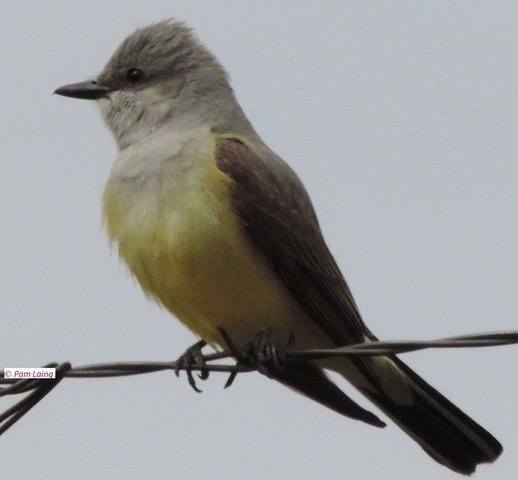
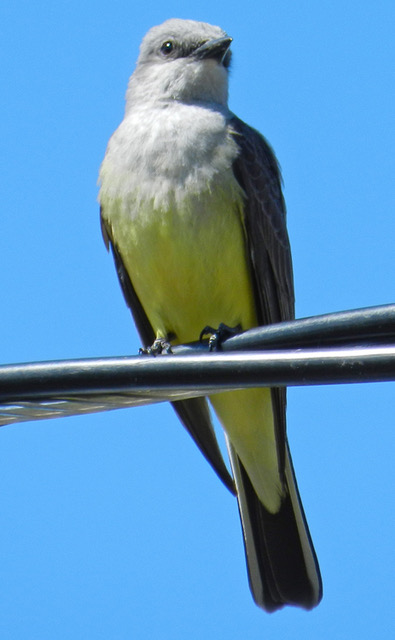
Western Kingbirds have a yellow belly, pale grey breast and dark wings and tail. The outer edges of the tail are white, which flash noticeably when the bird flies and distinguish it from all other kingbirds. Eastern Kingbirds are “in evening dress”, black head, very dark grey-black back, and white underparts. This bird has a white tip to its black tail. Both have the slightly domed head and flat beak common to all flycatchers.
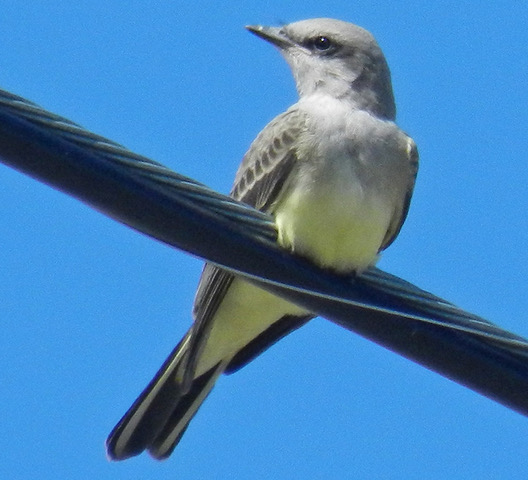
Western Kingbirds raise one brood of chicks annually in an open bulky cup of grass, rootlets and twigs in a tree or shrub, and quite frequently behind transformers on power poles. As well as darting out to take insects on the wing, they also eat berries. Their chattering calls and high-pitched notes are regularly repeated. They attack crows and other predators aggressively if they are near the nest. Their season here is short; migration usually begins in late summer and the birds will winter in the western US and Mexico.
Eastern Kingbirds also raise a single brood, usually building their nests on a horizontal branch of an isolated tree and occasionally in stumps or fence posts. I have even seen them nest in the rotting pilings of an old dock in a pond. They too will eat berries and fruit as well as insects. I always listen for their electric-sounding buzzy call, unique to the species. Like their Western counterparts, they are also very aggressive towards avian predators and will pursue them relentlessly.
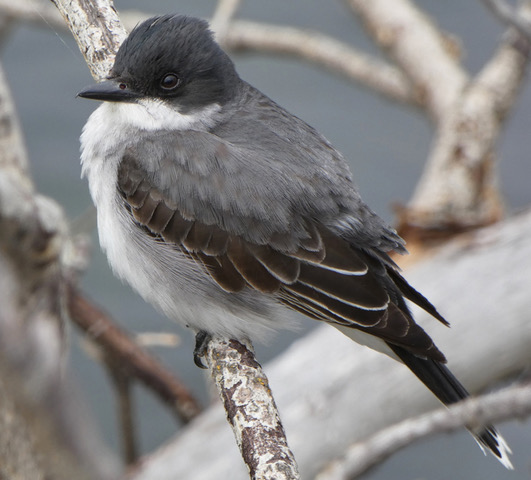
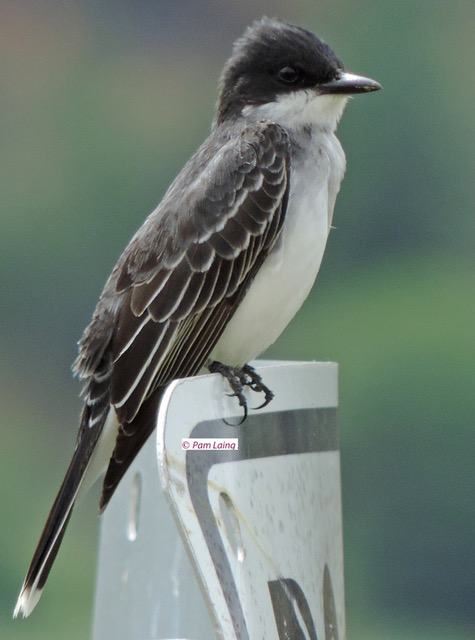
Eastern Kingbirds are generally monogamous, the same pair returning to the same territory in subsequent years. Interestingly, they can identify the eggs of the parasitic Brown-headed Cowbird and will remove them from the nest. They care for their young for a long time after they hatch, as much as five weeks or more. These kingbirds are long-distance migrants, however, wintering in South America as far south as Argentina.
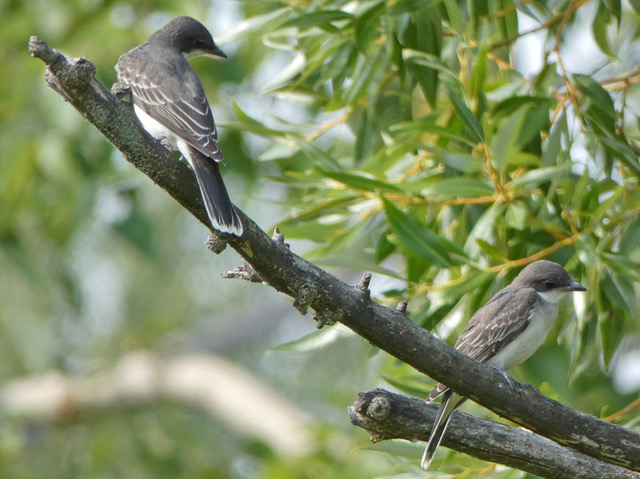
So as you drive along country roads, play golf or walk some of our valley trails this summer, keep your eyes out for these large flycatchers. They’ll be gone again before we know it.
Pam Laing
Okanagan birder







Duane Thomson
Another wonderful post Pam. So much interesting detail and fine photos. Thank you very much for these great posts.
Pam Laing
Thanks Duane, always a pleasure and helps me learn as I do the research necessary.
Pam
Carol Millar
Very timely as I saw both Eastern and Western Kingbirds today on Black Mountain. Sadly, a small fledgling Western Kingbird was peeping on the ground about 10 days ago, not quite ready to fly. Its siblings and parent were watching from a hydro line.
Pam Laing
Thanks Carol,
It seems I hit the time just right! Much depends on which species I have decent photographs of, before I can compose an entire article. I wonder if your Western Kingbird chick survived, not much chance, I fear.